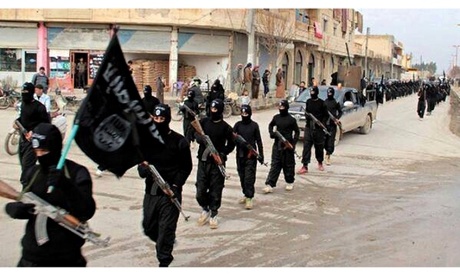
The request to Congress on Thursday, heralded by Barack Obama's vow, made during a speech at West Point military academy, to step up assistance to a beleaguered Syrian force, comes as the administration searches for effective alternatives to the jihadist army that has carved out massive swaths of Syria and Iraq for an Islamic state.
Previously, US aid to the Syrian opposition that is fighting dictator Bashar al-Assad focused on non-lethal provisioning, while the Central Intelligence Agency focused on sending small arms and missiles to what the US calls the "vetted" Syrian moderates. Yet the Gulf Arab states have established an arms pipeline giving a substantive military edge to jihadist groups fighting Assad and one another.
Caitlin Hayden, the National Security Council spokeswoman, said in a statement that the requested aid would "help defend the Syrian people, stabilize areas under opposition control, facilitate the provision of essential services, counter terrorist threats, and promote conditions for a negotiated settlement."
US military training for the Syrians, three-and-a-half years into a conflict that has killed more than 150,000 people and recast the boundaries of the Middle East, is likely to take place in Jordan, where the US military already trains its Iraqi counterparts. It is also in line with Obama's desired template for counterterrorism, as unveiled at West Point, in which the US trains foreign security forces to assault terrorists themselves.
Accordingly, a long-delayed war funding package, known for years as the Overseas Contingency Fund and before that a "supplemental", includes $5bn for the administration's heavily promoted Counterterrorism Partnerships Fund.
Some $1.5bn of that would go into a "regional stabilization initiative" for Syrian neighbors Jordan, Lebanon, Turkey and Iraq.
The overall size of the wartime funding package, distinct from the half-trillion annual defense budget, is $65.8bn, down from $79.4bn. Much of that money will go to funding the Afghanistan war now that Obama announced that 2014 will not mark its end but rather the end of most US combat.
Yet the White House cautioned that despite a reduction in US troops, funding for the Afghanistan war will not "decline precipitously." Instead, according to a White House statement, "significant costs" will remain, both for the logistically complex and expensive process of removing personnel and equipment from Afghanistan and bolstering the Afghan security forces – a project with new salience after the US-trained Iraqi military was routed in Nineveh Province by the Islamic State of Iraq and the Levant (Isis).
Δεν υπάρχουν σχόλια:
Δημοσίευση σχολίου